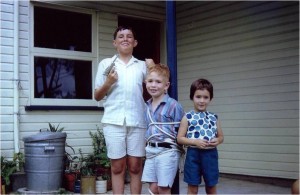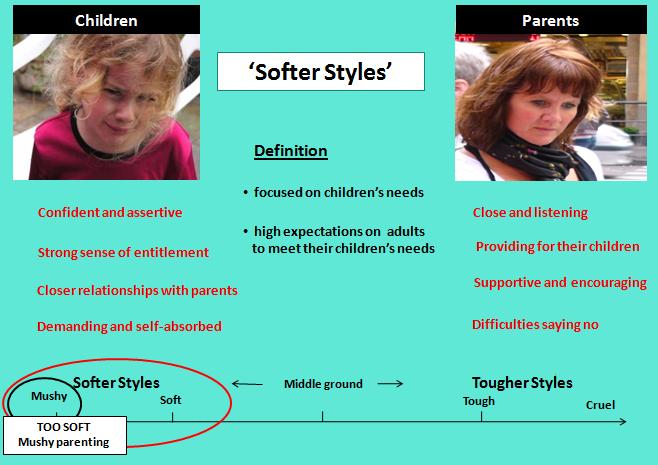Perhaps you’ve been wondering what we mean when we talk about today’s ‘softer style’ of parenting? Parenting styles can be very unique and complex – so this is a simpler way of talking about some important changes that have been occuring in how we raise children.
Think back for a moment on your own childhood years.
When you look back you may remember a world that looked very different to today. Perhaps you had a dad who went to work and a mum who stayed at home with the children. You may have played cricket in the backyard with the neighbours, kept busy building cubby houses or spent hours watching the old black and white television.
A lot has changed since the time when we were children – and these changes in society have influenced the ideas our generation have inherited about raising children. In general, our society has become more liberal-minded, with greater opportunities for women both at home and in the workplace. There has been great technological advances and with this a higher standard of living and an increased expectation about what life has to offer. There is greater access to information, and society is becoming more psychological minded and with a greater interest in people’s emotional well-being, especially for children.
So the world is a very different place to the one when we were children. It is not surprising then that our ideas about parenting have also changed.
As a consequence of all these changes,
our ideas about parenting have also shifted
towards a more liberal, nurturing, child-focused approach
– what we will call a ‘softer style’ of parenting.
The ‘softer style’ focuses on the child’s needs more than the adults. Pressure is placed on the adult to play their role in meeting their children’s needs.
In parents using a ‘softer style’ you tend to see
- parents who are close and listening
- parents providing for their children
- parents who are encouraging and supportive
- and sometimes parents who have difficulty saying no.
In children whose parents use a ‘softer style’ you tend to see
- children who are confident and assertive
- children with a strong sense of entitlement (ie believe they have a right to have what they want),
- children with close relationships with their parents
- and sometimes children who are demanding and self-absorbed.
Too Soft is mushy
At the extreme end of the ‘softer style’ is what we call ‘mushy’ parenting.
.
You are invited to join ‘The 10 Secrets of Successful Families’
free online program. Simply click on the button below.
To learn more about the program click here.
Next: 2. Preparing our children for an uncertain future


